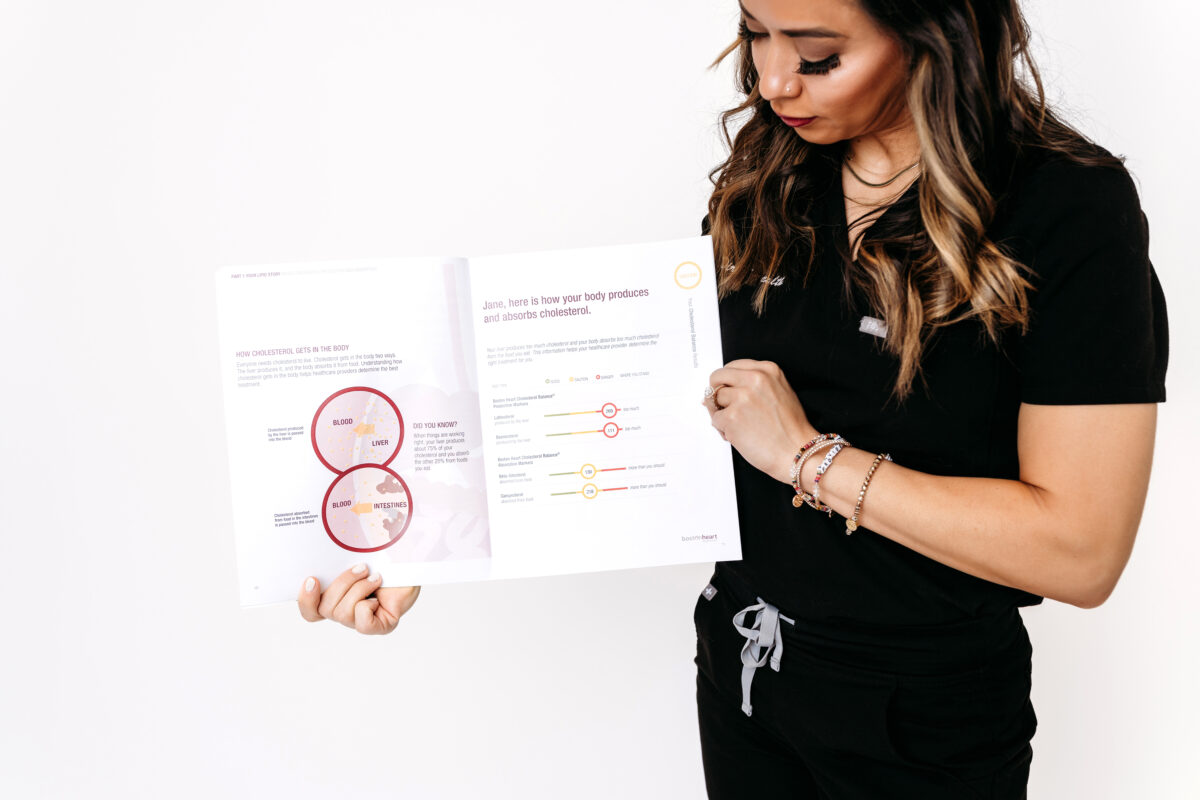At Yoo Direct Health, we believe that longevity isn’t just about adding years to your life—it’s about adding quality to those years. While advancements in longevity testing allow us to track early warning signs of aging and disease, true healthspan optimization requires more than just lab work. It requires real lifestyle changes—better sleep, targeted exercise, and proper nutrition—all areas that are often overlooked in traditional medicine. Regular exercise can help lower blood pressure, improve circulation, and reduce the risk of various health issues, including heart disease and diabetes.
That’s why our approach at Yoo Direct Health goes beyond just measuring biomarkers. We use testing as a tool to guide personalized, evidence-based strategies to help you feel stronger, sharper, and more resilient for years to come.
Longevity Testing: Why It’s a Game Changer
Traditional medical testing often focuses only on diagnosing disease after symptoms appear. Longevity testing flips the script—it allows us to detect early changes in metabolic function, inflammation, and cellular aging before they become major health problems.
We assess key biomarkers that give us a clear picture of how your body is aging and where we can intervene. Some of the most critical markers include:
1. Inflammation Markers: The Silent Driver of Aging
Inflammation is at the root of nearly every age-related disease, including heart disease, neurodegeneration, and metabolic dysfunction. Chronic low-grade inflammation—sometimes called inflammaging—damages cells over time, leading to premature aging.
Key markers we test:
- hs-CRP (high-sensitivity C-reactive protein): A measure of chronic inflammation that contributes to cardiovascular disease.
- Homocysteine: Elevated levels can indicate oxidative stress and increased risk for cognitive decline.
- Interleukin-6 (IL-6): A cytokine linked to systemic inflammation and accelerated aging.
2. Metabolic Health: The Key to Energy and Disease Prevention
Metabolic dysfunction is one of the earliest warning signs of future chronic disease. Insulin resistance, blood sugar imbalances, and poor mitochondrial function contribute to fatigue, weight gain, and increased disease risk.
Key markers we test:
- Fasting insulin & glucose: Early indicators of insulin resistance, even before diabetes develops.
- HbA1c: Tracks long-term blood sugar control and metabolic function.
- Lipid & cardiovascular markers: ApoB and Lp(a) go beyond basic cholesterol panels to assess heart disease risk.
Why this matters: Optimizing metabolic function improves energy, brain function, and longevity while preventing diseases like diabetes, cardiovascular disease, and cognitive decline.
3. Hormone Balance: The Overlooked Piece of Longevity
Your hormones dictate how you age, how you feel, and how resilient your body is over time. Imbalances in key hormones can lead to fatigue, weight gain, loss of muscle mass, mood disturbances, and increased inflammation.
Key markers we test:
- Testosterone & estrogen: Crucial for muscle mass, cognitive function, and metabolic health.
- DHEA: A precursor to many hormones, linked to longevity and resilience to stress.
- Cortisol: Chronic stress can dysregulate cortisol, leading to sleep issues, weight gain, and inflammation.
Why this matters: Addressing hormonal imbalances restores vitality, improves body composition, and enhances longevity by supporting metabolic health and reducing disease risk.
4. Cellular Aging & Mitochondrial Health
Aging isn’t just about how many years you’ve been alive—it’s about how well your cells function. By assessing cellular and mitochondrial health, we can determine your biological age versus your chronological age.
Key markers we test:
- Telomere length: Shorter telomeres indicate accelerated aging and increased disease risk.
- Methylation markers: Epigenetic changes impact how genes are expressed over time.
- NAD+ levels: Essential for mitochondrial function and energy production.
Why this matters: Cellular health is the foundation of longevity. Supporting mitochondrial function helps maintain energy, muscle mass, and cognitive sharpness as you age.
Beyond Testing: The Lifestyle Factors That Are Commonly Missed
Many people assume that longevity testing is just about tracking numbers, but that’s only half of the equation. Your lifestyle choices have the greatest impact on how well you age, and unfortunately, key areas like sleep, movement, and nutrition are often neglected in standard longevity conversations.
At Yoo Direct Health, we don’t just hand you lab results—we help you implement real changes to improve your health.
1. Sleep: The Ultimate Anti-Aging Tool
Sleep is the most underrated longevity intervention. While you sleep, your body undergoes essential repair processes, clears out toxins from the brain, and regulates hormones like growth hormone, melatonin, and cortisol.
Signs your sleep may be aging you faster:
- Waking up tired despite “getting enough hours”
- Struggling to fall or stay asleep
- Feeling wired but exhausted (especially at night)
- Relying on caffeine to get through the day
Our approach to better sleep:
- Optimize circadian rhythms through light exposure & sleep timing
- Manage stress and cortisol levels with targeted interventions
- Support melatonin production naturally (without dependency on supplements)
2. Exercise: Strength is the Key to Longevity
Losing muscle isn’t just about aesthetics—it’s a major risk factor for insulin resistance, metabolic dysfunction, and frailty in aging. Resistance training is the best longevity prescription for maintaining strength, mobility, and metabolic health.
At Yoo Direct Health, we track muscle mass using InBody scans** to ensure you’re maintaining lean muscle as you age.**
- Strength training at least 3x per week to preserve muscle
- Zone 2 cardio for mitochondrial health & fat metabolism
- Mobility & flexibility work to prevent injury and support long-term movement
3. Nutrition: Personalized for Longevity
Forget fad diets—true longevity nutrition is about fueling your body at a cellular level.
Our approach:
- Prioritize protein to maintain muscle mass
- Emphasize healthy fats to reduce inflammation
- Focus on micronutrient density for optimal cellular function
- Personalize based on genetics, metabolic health, and gut function
The Yoo Direct Health Approach: Testing + Real-Life Strategies
Longevity testing is only the starting point. We combine data-driven insights with real-world strategies to help you optimize health from the inside out.
- We explain your results in real-life terms—what your biomarkers mean for your energy, focus, and aging process.
- We create personalized lifestyle plans—not just generic advice, but specific sleep, exercise, and nutrition strategies based on your test results.
- We provide ongoing accountability—because lasting change happens with support and consistency.
Longevity isn’t just about numbers—it’s about your daily habits. If you want to feel stronger, sharper, and more resilient for years to come, it’s time to get serious about both testing and action.
Understanding Longevity and Health Outcomes
Longevity and health outcomes are intricately linked, with a myriad of factors contributing to an individual’s overall health and lifespan. Research underscores that a blend of genetic, lifestyle, and environmental factors significantly influences human longevity. Understanding these elements is crucial for developing effective strategies to promote healthy aging and improve health outcomes.
Studies have pinpointed several key contributors to longevity, including a nutritious diet, regular exercise, effective stress management, and access to quality healthcare. Additionally, the importance of social connections, mental stimulation, and a sense of purpose cannot be overstated in promoting healthy aging.
The functional medicine model, which adopts a holistic approach to healthcare, has proven effective in fostering healthy aging and enhancing health outcomes. This model focuses on addressing the root causes of disease and promoting overall wellness, rather than merely treating symptoms. By considering environmental factors and lifestyle choices, functional medicine offers a comprehensive strategy for achieving optimal health and longevity.
Lifestyle Factors and Longevity
Lifestyle factors play a pivotal role in determining an individual’s longevity. Research consistently shows that a healthy lifestyle, encompassing a balanced diet, regular exercise, stress management, and adequate sleep, can significantly promote healthy aging and improve health outcomes.
Exercise stands out as one of the most crucial lifestyle factors for longevity. Regular physical activity, particularly aerobic exercise, has been shown to enhance cardiovascular health, reduce the risk of chronic disease, and promote overall wellness. Engaging in an exercise program that includes both aerobic and resistance training can help maintain major muscle groups, support the cardiovascular system, and improve body weight management.
In addition to exercise, a healthy diet is essential for longevity. Consuming a diet rich in fruits, vegetables, whole grains, and lean proteins can help reduce the risk of chronic disease and support overall health. Stress management is equally important, as chronic stress can negatively impact health, increasing the risk of anxiety, depression, and cardiovascular disease. Incorporating stress-reducing activities, such as meditation or yoga, can promote relaxation and improve health outcomes.
Nutrition and Longevity
Nutrition is a cornerstone of longevity, with a healthy diet playing a critical role in promoting healthy aging and reducing the risk of chronic disease. Essential nutrients, such as omega-3 fatty acids, antioxidants, and fiber, are vital for maintaining health and wellness.
Omega-3 fatty acids are particularly important for longevity. These essential fats have been shown to reduce inflammation, improve cardiovascular health, and support overall wellness. Antioxidants, such as vitamins C and E, help protect cells from damage and reduce the risk of chronic disease.
A diet rich in fiber is also crucial for longevity. Fiber supports digestive health, helps regulate blood sugar levels, and reduces the risk of chronic disease. By incorporating a balanced diet, regular exercise, stress management, and adequate sleep into their lifestyle, individuals can promote healthy aging and improve their overall health and well-being.
In conclusion, a holistic approach that integrates nutrition, exercise, stress management, and quality sleep is essential for promoting longevity and achieving optimal health outcomes. By understanding and addressing the various factors that influence health, individuals can take proactive steps to enhance their longevity and quality of life.
Learn more on The Better Yoo Podcast!



